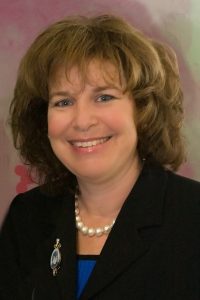January 15, 2020
FABBS welcomes Roxane Cohen Silver, University of California, Irvine, as she steps into the role of FABBS President for a two-year term.

What inspired you to become President of the FABBS board?
My academic area of expertise is on the psychological, physical, and social impact of traumatic life experiences, such as natural disasters, mass violence events, and other community traumas. Over the years, I have been struck by the fact that public leaders and decision makers too often engage in policy-making in the aftermath of these events in the absence of scientific evidence that could/should inform their plans. Too often government policies are enacted without attention paid to research evidence that fails to support – or sometimes contradicts – the policy. Admittedly, social and behavioral scientists tend to publish the results of our investigations in scientific peer-reviewed journals or deliver presentations to our peers at professional conferences. Moreover, decision makers tend not to solicit our opinions. Nonetheless, I maintain that it is critical to bridge the all-too-often widespread communication gap between researchers and policymakers. For that reason, almost two decades ago I became involved in and committed to bringing social and behavioral science theory and research into practice at the highest levels of government as a member of several senior advisory committees for the U.S. Department of Homeland Security. I am excited now to have the opportunity to dedicate my time and energy to FABBS. Indeed, I see serving as President as the culmination of my long-standing commitment to advocacy and my efforts to bring together scientists, policymakers, and the public, with the ultimate goal of advancing science in the service of society.
As President of the FABBS board, what do you hope to accomplish?
Because of the extraordinary efforts of our great staff and committed members of the FABBS board, I believe that our organization has been very successful advocating for our sciences with federal agencies and educating government leaders about the important research we do. But staff in the funding agencies and Congress turn over regularly and there is always more work to do. Moreover, at a time of intense partisanship in our county, it is important to ensure that science stays above the fray. I hope that we will continue to educate federal government and agency leadership and decision makers of the value of and need to fund the behavioral and brain sciences and will continue to weigh in on important government policies.
What are some of the biggest current challenges facing behavioral, cognitive, and social science these days?
Because much of the work conducted by practitioners of our sciences depends on federal funding, we are in the challenging position of defending our value to individuals who may not understand the importance of what we do in a way that medical researchers and STEM scientists are never forced to explain. Of course, many of us do not receive training in graduate school on how to translate our results into digestible nuggets for policymakers. The added crisis of confidence in the replicability of some findings, and the “anti-science” movement that characterizes some political discourse, are additional challenges. These concerns highlight the importance of an organization like FABBS. Our presence in Washington, DC, and our hardworking staff, enable dozens of societies and departmental affiliates – a coalition of thousands of scientists — a uniform voice to advocate on our behalf, rather than trying to fight the battle on our own.
In your opinion, what can members of our societies and affiliates do to advance the efforts of FABBS?
I believe that it is important that our scientists stay informed about what FABBS staff members are doing in Washington to ensure that social, behavioral and cognitive sciences stay “on the radar” of federal funding agencies and policymakers. We all benefit from the important work that they do, tirelessly advocating our value. We all live in Congressional Districts with members who can vote to support our work – or not. Speak out when we are asked to address policy shifts that hinder our work (e.g., NIH’s definition of “clinical trials”); sign petitions when they are generated; reach out to Congressional staff when asked. I fear the consequences if no one was available to speak on our behalf.